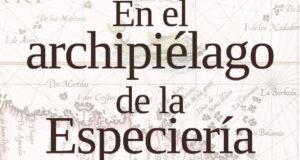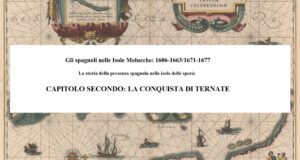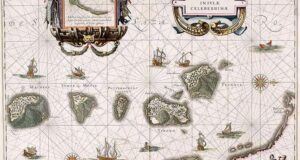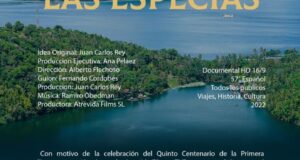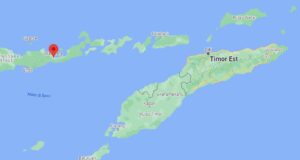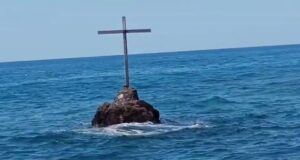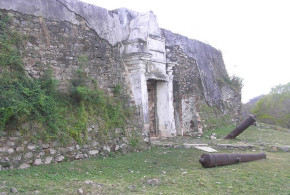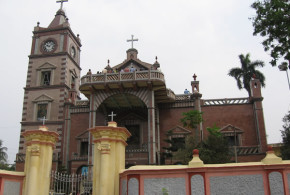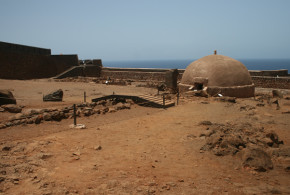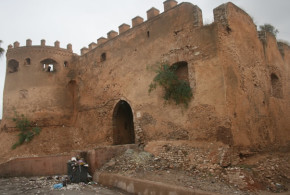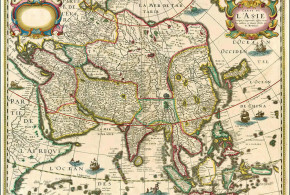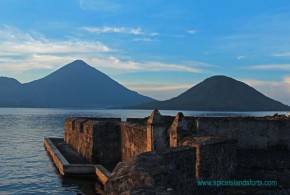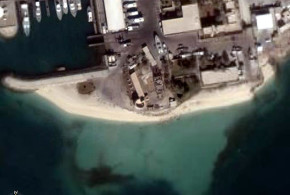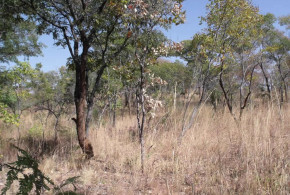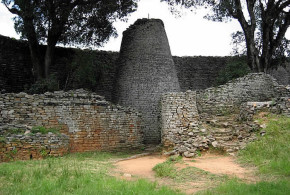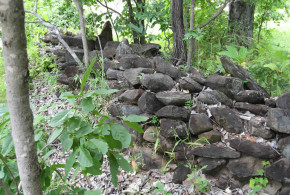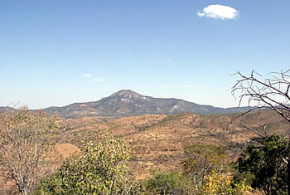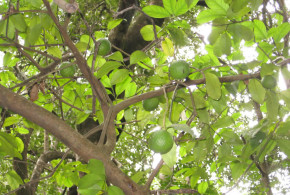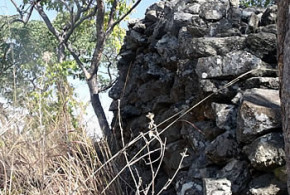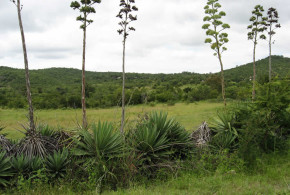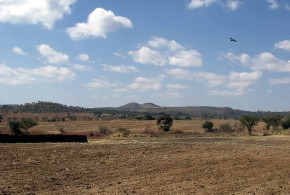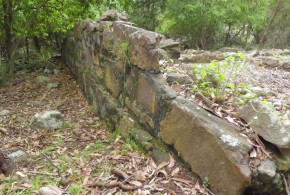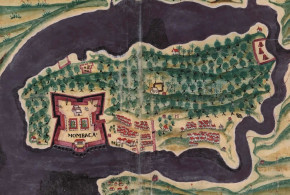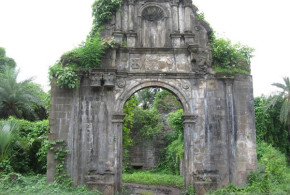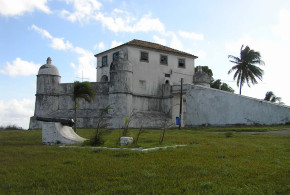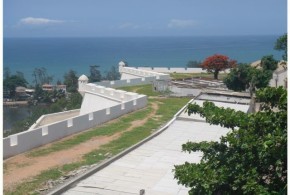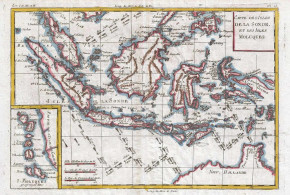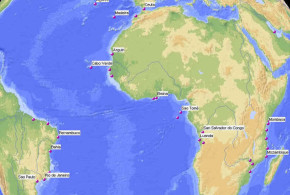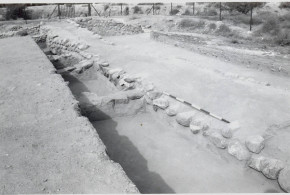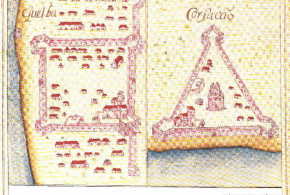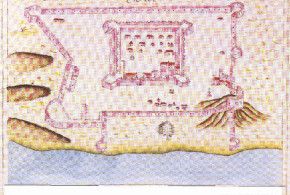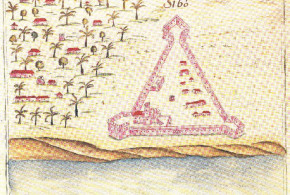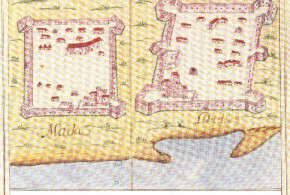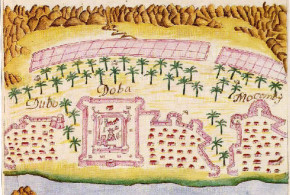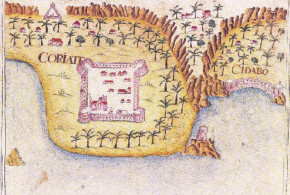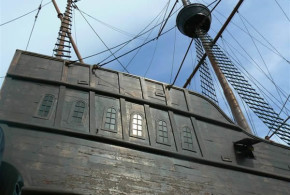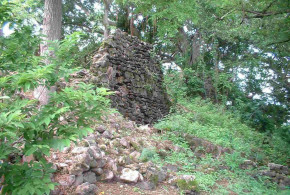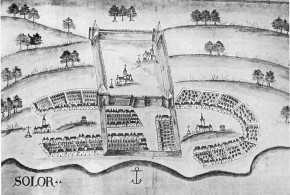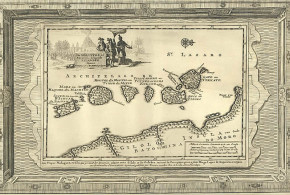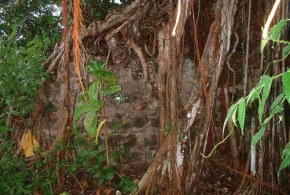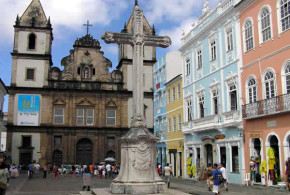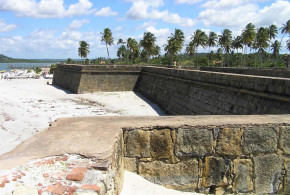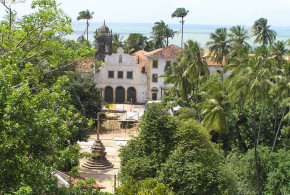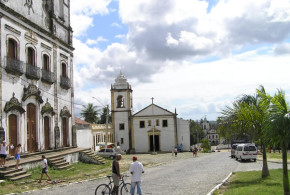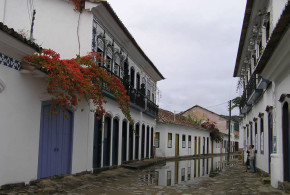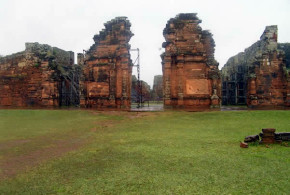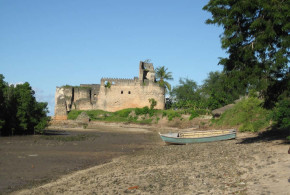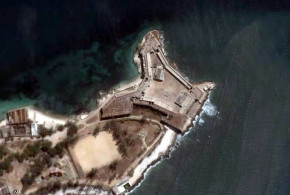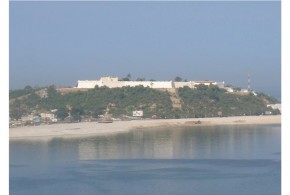Written by Marco Ramerini.
Brazil was discovered, almost by accident in 1500 by a Portuguese expedition live in the East under the command of Pedro Alvares Cabral. Cabral ‘s expedition followed the sea route to India traveled recently by Vasco da Gama, sailing around Africa. The expedition – to avoid the equatorial calms – followed a route far from the African coast that led to the discovery, on April 22, 1500, of the Brazilian coast. Cabral to these new lands gave the name of “Vera Cruz” .
Following the discovery of Cabral, in the following years several Portuguese expeditions reached Brazil, but in the first 30 years – from 1500 until 1530 – the Portuguese were limited to quick landings and harvesting timber (the famous Pau Brasil). Only because of the French attempts to occupy the new land, Portugal decided to colonize Brazil. In 1532, the expedition Martim Afonso de Sousa founded the village of São Vicente, which became the first permanent settlement in Brazil. As of 1534 D. João III divided the territory into twelve hereditary captaincies, but this system of colonization proved to be unprofitable, so in 1549 the king decided to appoint a Governor-General to administer the entire colony.
LIST OF GOVERNORS AND VICEROYS OF PORTUGUESE BRAZIL, 1549-1760 |
|
|
Tomé de Sousa |
1549-1553 |
|
Duarte da Costa |
1553-1558 |
|
Men de Sá |
1558-1572 |
|
Luís Brito de Almeida |
1573-1578 |
|
Lourenço da Veiga |
1578-1581 |
|
Temporary government of Câmara and of Ouvidor-Geral Cosme Rangel |
1581-1583 |
|
Manuel Telles Barreto |
1583-1587 |
| Temporary government of Bispo, of Provedor-Mor and Ouvidor-Geral |
1587-1591 |
|
Francisco de Sousa |
1591-1602 |
|
Diogo Botelho |
1603-1607 |
|
Diogo de Meneses |
1608-1612 |
|
Gaspar de Sousa |
1613-1617 |
|
Luís de Sousa |
1617-1621 |
|
Matias de Albuquerque (he was ufficially entrust of this task because the Dutch occupation of Salvador; later he appointed Francisco de Moura Rolim as governor of Salvador during 1625-1627) |
1624-1625 1625-1627 |
|
Diogo Luís de Oliveira |
1627-1635 |
|
Pedro da Silva |
1635-1639 |
|
Fernando Mascarenhas, Conde da Torre |
1639 |
|
Vasco Mascarenhas, Conde de Óbidos |
1639-1640 |
|
Vice-Rei Jorge Mascarenhas, Marquês de Montalvão |
1640-1641 |
|
Junta provisória |
1641-1642 |
|
Antônio Telles da Silva |
1642-1647 |
|
Antônio Telles de Meneses, Conde de Vila-Pouca de Aguiar |
1647-1650 |
|
João Rodrigues de Vasconcellos e Sousa, Conde de Castelo Melhor |
1650-1654 |
|
Jerônimo de Altaíde, Conde de Atouguia |
1654-1657 |
|
Francisco Barreto de Meneses |
1657-1663 |
|
Vice-Rei Vasco Mascarenhas, Conde de Óbidos |
1663-1667 |
|
Alexandre de Sousa Freire |
1667-1671 |
|
Afonso Furtado de Castro do Rio de Mendonça, Visconde de |
1671-1675 |
|
Junta provisória composed by Chanceler da Relação, Agostinho de Azevedo Monteiro and other people. When Azevedo Monteiro dead, on his place was appointed the Desembargador Cristóvão de Burgos |
1675-1678 |
|
Roque da Costa Barreto |
1678-1682 |
|
Antônio de Sousa de Meneses |
1682-1684 |
|
Matias da Cunha |
1687-1688 |
|
Junta provisória composed by Chanceler da Relação Manoel Carneiro de Sá and by the Arcebispo |
1688-1690 |
|
Antônio Luís Gonçalves da Câmara Coutinho |
1690-1694 |
|
João de Lencastre |
1694-1702 |
|
Rodrigo da Costa |
1702-1705 |
|
Luís César de Meneses |
1705-1710 |
|
Lourenço de Almeida |
1710-1711 |
|
Pedro de Vasconcellos e Sousa, Conde de Castelo Melhor |
1711-1714 |
|
Vice-Rei Pedro de Noronha, Conde de Vila Verde e Marquês de |
1714-1718 |
|
Sancho de Faro e Sousa, Conde de Vimieiro |
1718-1719 |
|
Junta provisória composed by Chanceler da Relação, Caetano de Brito de Figueiredo and other people. |
1719-1720 |
|
Vice-Rei Vasco Fernandes César de Meneses, Conde de Sabugosa |
1720-1735 |
|
Vice-Rei André de Mello e Castro, Conde de Galvêas |
1735-1749 |
|
Vice-Rei Luís Pedro Peregrino de Carvalho Meneses de Ataíde, |
1749-1755 |
|
Junta provisória composed by chanceler da Relação, Manoel Antônio da Cunha Sottomayor and other people. |
1755 |
|
Vice-Rei Marcos de Noronha e brito, Conde de Arcos |
1755-1760 |
 Colonial Voyage The website dedicated to the Colonial History
Colonial Voyage The website dedicated to the Colonial History



